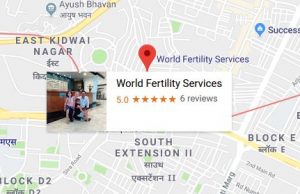
Indian Surrogacy Laws Simplified!
Who Is Eligible?
- To indulge in surrogacy services in India, a person coming outside of the country should be at least 2 years old of marriage heterosexually.
- Only Indian passport holders are Eligible for Surrogacy.
- The Act is restricted to only two categories of people i.e., the intending couple who are legally married and according to the Surrogacy Laws in India, and that has a certificate of infertility can use this facility. The couple needs to be between the age of 25 to 50 for the females and 26 to 55 years for the males.
- It is permitted only for altruistic purposes or for couples who suffer from proven infertility or disease. Surrogacy Laws in India are prohibited for commercial purposes including for sale, prostitution, or any other forms of exploitation.
Getting Medical Visa
- To get a medical visa for surrogacy, the couple will furnish an undertaking in a manner to take care of the children born through surrogacy.
- The treatment should be done only at one of the registered Assisted Reproductive Technology (ART) clinics recognized by the Indian Council of Medical Research (ICMR). Our Clinic is Registered.
- The couple should produce a duly notarized agreement between the applicant couple and the prospective Indian surrogate mother. We will arrange the agreement on your request.
- Once you are ready, contact us and our Legal Team will process all your documents. You will need to send us a copy of your marriage certificate.
Baby Exit Process
- The birth certificate of the baby is provided by the local municipal authority within 4 – 7 days.
- You then apply for a DNA test of the baby and thereafter the Passport of the baby at your Country’s embassy in New Delhi.
- You then apply online for an appointment with the FRRO [Foreigners Regional Registration Office] for the Exit Visa for the baby.
- FRRO will see that the foreign couple carries a certificate from the ART clinic regarding the fact that the child has been duly taken custody by the foreigner and the surrogate mother has been paid fully.
- All Documents relating to baby exit visas are prepared by our Baby Exit Assistance team, with a member accompanying you for FRRO appointments.

ICMR Guidelines
i. Arrangement to Surrogacy Laws in Indiawill continue to be ruled by a contract amongst parties, which will hold all the terms looking for the consent of the surrogate mother to bear the child, agreement of her husband and other family members for the same, medical procedures of artificial insemination, reimbursement of all reasonable expenses to carry a child to full term, willingness to give up the child born to the commissioning parent(s), etc. But such an arrangement should not be for commercial purposes.
ii. A surrogacy arrangement should give for financial support to the surrogate child in the event of death of the commissioning couple or individual before delivery of the child, or divorce between the intended parents and following readiness of none to get delivery of the child.
iii. A surrogacy contract should unavoidably look after life insurance cover for surrogate mother.
iv. One of the intended parents should be a donor also, as the bond of love and affection with a child primarily originates from biological relationship. In addition, the chances to a variety of kinds of child-abuse, which have been taken in cases of adoptions, will be reduced. In case the intended parent is single, he or she should be a donor to have a surrogate child. Otherwise, adoption brings itself as the way to have a child, which appears option to if biological parents and adoptive parents are dissimilar.
v. Legislation itself should recognize a surrogate child to be the lawful child of the commissioning parent(s) without there being any need for adoption or even a declaration of guardian.
vi. The birth certificate of the surrogate child should hold the name(s) of the commissioning parent(s) only.
vii. Right to the privacy of the donor with the surrogate mother should be guarded.
viii. Sex-selective surrogacy should be made illegal.
ix. Cases of abortions should be ruled by the Medical Termination of Pregnancy Act 1971 only.
i. To provide sufficient information to the patients.
ii. To explain to the patient the basis of selecting an exacting treatment and point to the choices the patient has, with the advantages and disadvantages of each choice.
iii. To assist for the patient exercise a choice, that may be best for him/her, allowing for the individual’s circumstances.
iv. To uphold records in an apt proforma to enable collation by a national body.
v. When commercial DNA fingerprinting goes available, to continue its record, if the ART clinic desires and the couple concurs, DNA fingerprints of the donor, the child, the couple, and the surrogate mother should be performed.
vi. To keep all information about donors, recipients, and couples confidential and secure. The information about the donor should be liberated by the ART clinic after suitable identification, only to the offspring and only if asked by him/her after he/she arrives at the age of 18 years, or as and when stated and needed for the legal purposes, and never to the parents.
vii. To uphold appropriate, thorough records of all donor oocytes, sperm or embryos used, the manner of their use. These records must be continued for at least 10 years after which the records must be moved to a central depository to get maintained by the ICMR. If the ART clinic is ended during this period, the records must be transferred to the central repository in the ICMR.
viii. To have the schedule of all its charges duly shown in the clinic and announced to the patient at the beginning of the treatment. There must be no extra charges beyond what was closed to the patient at the beginning of treatment.
ix. To make sure that no technique is used on a patient for which the confirmed expertise does not exist with the staff of the clinic.
x. To be completely see-through in all its operations. Therefore, the ART clinics must allow the patient recognize what the success rates of the clinic get in regard to the procedures planned to be used on the patient.
xi. To have all consent forms available in English and local language(s).
ii. The potential side-effects and the risks of treatment to the women and the resulting child, such as the risks connected with the numerous pregnancies.
iii. The need to decrease the number of viable foetuses, in order to make sure the survival of at least two foetuses.
iv. Probable disturbance of the patient’s domestic life that the treatment may reason.
v. The techniques involved, such as the possible worsening of gametes or embryos related with storage, and possible pain and discomfort.
vi. The cost to the patient of the treatment proposed and of an alternative treatment, if any.
vii. The significance to tell the clinic of the result of pregnancy in a pre-paid envelope.
viii. To do the couple aware, if relevant, that a child born through ART has a right to look for information about his genetic parent/surrogate mother on reaching 18 years, excepting information on the name and address – that is, the individual’s personal uniqueness – of the gamete donor or the surrogate mother. The couple is not compelled to offer the information to which the child has a right, on their own to the child when he/ she arrives at the age of 18, but no effort must be made by the couple to screen this information from the child should an occasion arise when this issue gets itself important for the child.
ii. On the other hand, the success rate of surrogacy is above 55% with fresh embryos and 25% with frozen embryos.
iii. The package for surrogacy in India and Surrogacy Laws in India approximately charges 50% less as compared to other countries and could differ between Rs 8, 00, 000 to 15, 00, 000 just about.
iv. The surrogacy package price estimates above, covers doctor fees, legal fees, surrogate workup, antenatal care, release charges, surrogate compensation, egg donor, drugs and consumables, & IVF costs.
Latest Surrogacy News
Yes, there are many fertility clinics in India. As the reports disclose that there are about 1,000 clinics, the medical costs connected with Surrogacy Laws in India in these clinics are also lower in the country as compared to many other countries. These factors formed India as a very popular destination for likely lesbian and gay parents in the past.
Although the robust data concerning how many same-sex couples or LGB individuals land their paths to Surrogacy Laws in India is not available, some sources report that about one-third of those that sought surrogacy services in India in the past were lesbian or gay-identifying. In total, about 50,000 people who are seeking surrogate mothers visit India each year and about 2,000 live surrogate births take place as a result.
a) Traditional surrogacy
Traditional surrogacy is where the surrogate and the child get hereditarily related. For an example, the biologically related gay or bisexual dad(s) offer the surrogate with sperm to self-inseminate. On the other hand, the sperm may be inseminated from the intending father(s) into the surrogate at a fertility clinic, for example. Also, know this kind of surrogacy is as “partial”, “natural” or “straight” surrogacy.
b) Gestational surrogacy
Yes, this is referred to as full or host surrogacy. Gestational surrogacy is where the surrogate mother is not genetically related to the child.
Before one does start for fertility treatment to have from another country lawfully, it is truly essential to come with consent from embassy of his/her country to avail citizen for a baby
Surrogacy Contracts
- A child born through surrogacy must be accepted by the genetic parents except they could set up through genetic (DNA) fingerprinting that the child is theirs.
- Surrogacy by assisted conception should usually be believed only for the patients for whom it would be physically or medically impossible to carry a baby to term.
- Payments to surrogate mothers should cover all real expenses linked with the pregnancy. Documentary evidence of the financial arrangement for surrogacy must be available. The ART centre should not be concerned in this monetary aspect.
- Advertisements regarding surrogacy should not be brought in vision by the ART clinic. The liability of finding a surrogate mother, through advertisement or otherwise, should relax with the couple, or a semen bank.
- A surrogate mother should not be over 45 years of age. Previous to accepting a woman as a possible surrogate for an exacting couple’s child, the ART clinic must make sure that the woman suits all the testable criteria to experience a flourishing full-term pregnancy.
- A relative, as well as a person unknown to the couple, may do something as a surrogate mother for the couple. In the case of a relationship acting as a surrogate, the relative should go to the same generation as the woman desiring the surrogate.
- A potential surrogate mother must be tested for HIV and shown to be seronegative for this virus previous to embryo transfer. Also, she must offer a written certificate that:
- She has not had a drug intravenously managed into her through a shared syringe;
- She has not undergone a blood transfusion;
- She and her husband have had no extramarital relationship in the last six months. Also the prospective surrogate mother must declare that she will not bring into play to the drugs intravenously, and not endure blood transfusion excepting of the blood obtained through a certified blood bank.
-
- No woman may act as a surrogate more than thrice in her lifetime.
Surrogacy Notifications Content
At WFS, get below important notifications, guidelines related to Surrogacy in India.
Section 1: Acquaint with Notifications on ICMR website (ICMR and MHA)
- Draft Assisted Reproductive Technology-ART (Regulation) Bill – 2010

- Draft Assisted Reproductive Technology-ART (Regulation) Rules – 2010

- National Procedures for Accreditation, Supervision & Regulation of ART Clinics in India

- Foreign nationals to visit India for commissioning dated March 7th, 2013

- Foreign nationals to visit India for commissioning dated July 9th, 2012

- Foreign nationals to visit India for commissioning dated October 14th, 2013

Section 2: Know Import / Export of Gametes / Embryos
Certificate to get “No Objection Certificate (NOC)” to import / export gametes / embryos
- Click to get more
- Certificate from the authorized/registered Foreign ART Clinic.

- Certificate from the infertile foreign couple.

- Certificate from the registered ART Clinic in India.

Section 3: Acquaint with Notifications from diverse Embassies about Surrogacy in India
Get Online Consultation
Frequently Asked Questions about Surrogacy Laws in India
What are the rules for surrogacy in India?
Surrogacy Laws in India:- The new law bans commercial surrogacy and only allows altruistic surrogacy, which means there must be no exchange of money. The surrogate must be genetically related to the intending couple and must be a married woman between the age of 25 and 35, with a child of her own.
What are the surrogacy rules in 2022?
Under the Surrogacy (Regulation) Rules, 2022, The intending woman or couple shall purchase general health insurance coverage in favor of a surrogate mother for a period of thirty-six months from an insurance company or an agent recognized by the Insurance Regulatory and Development Authority established under the provisions of the Insurance Regulatory and Development Authority Act, (41 of 1999) for an amount which is sufficient enough to cover all expenses for all complications arising out of pregnancy and also covering post- partum delivery complications.
When did the surrogacy ban in India?
Before commercial surrogacy was banned in 2015, India was a popular destination for surrogacy. The economic scale of surrogacy in India is unknown, but a study backed by the United Nations in July 2012 estimated the business at more than $400 million a year, with over 3,000 fertility clinics across India.
Read Also:-
How Much Does IVF cost in Pune?
What is the Cost of Fertility Treatment in Gurugram?
How does IVF Cost in India?
what are Surrogacy Laws in India?
Why Select IVF Cost in Delhi for an Affordable Cost?
What Surrogacy Law in Kenya states?



 WhatsApp us
WhatsApp us